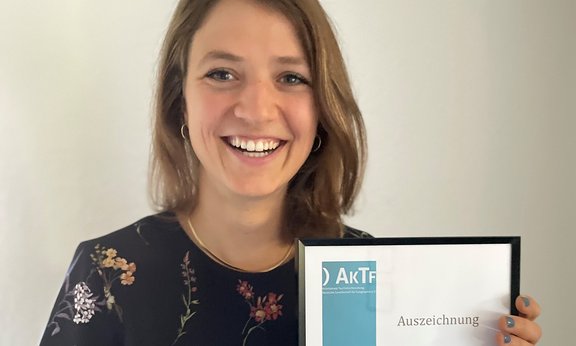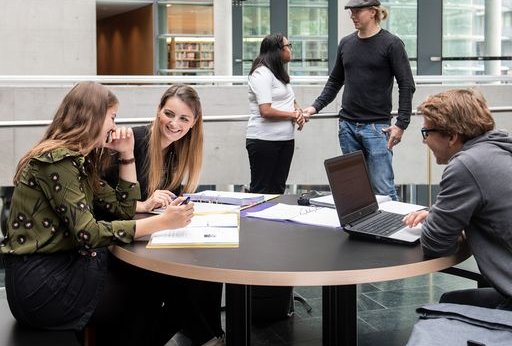PhD Program Economics and Statistics
Would you like to work intensively on economic and socio-political questions and develop new research methods?
The PhD Program in Economics and Statistics is offered jointly by the University of Innsbruck and the University of Linz, leading European institutions for empirical economics and data science as well as behavioral and experimental economics.
The programme is open to students from around the world, provided they hold a Master’s degree or equivalent. Students become competent researchers within the research community investigating economic and socio-political problems in depth and developing new research methods.
The topic of a dissertation should be aligned with the research interests of potential supervisors. Please check the faculty pages to learn about the research interests of potential supervisors. It is highly recommended to contact potential supervisors before finally applying to the programme.
Study Code
UC 794 355 xxx
FAQ
Graduates acquire the ability
- to write scientific papers that meet the international standards of peer-reviewed publications;
- to contribute to the international research network; to develop independent research programmes with scientific integrity and to successfully introduce and implement these at national and international research funding agencies;
- communicate with their professional environment, the scientific community and society in general about their specialist field.
The work of the graduates of the PhD Program in Economics and Statistics mainly consist of:
- to conduct theoretical and empirical research in economics or statistics and to publish internationally in economics or statistics,
- to apply theoretical and empirical research methods to solve (economic-political) problems and to develop them further for new problems.
Graduates will find their professional field of activity among other things:
- at universities,
- in research institutions and other post-secondary educational institutions,
- in research departments of the European Central Bank, the Oesterreichische Nationalbank, of other banks, rating agencies, regional development companies, market research institutions as well as in other companies and commercial organisations,
- in research departments of international organizations such as the OECD (Organization for Economic Development and Cooperation), EU (European Union), IMF (International Monetary Fund) or the World Bank,
- in research departments of public institutions, interest groups and NGOs (non-governmental organisations),
- in politics and the media,
- in the national statistical institutes, in particular Statistics Austria and the regional statistical offices.
Graduates tracking: Shows which occupational fields students enter after graduation
The next online session takes place on December 11th, 2023 at 3pm. You can attend the session via the follwing link: https://webconference.uibk.ac.at/b/jud-egz-szc-fcy
Faculty of Economics and Statistics Examination Office Information for students with disabilities
Curriculum
From the field

Preis für beste Nachwuchsarbeit gewonnen
Myriam Zollner, Absolventin des Masterstudiums Nachhaltige Regional- und Destinationsentwicklung, hat im Juni bei der Jahrestagung 2023 des „Arbeitskreis Tourismusforschung in der Deutschen Gesellschaft für Geographie (DGfG) e.V.“ in Saarbrücken (D) den „Young Researcher Award“ für die beste Masterarbeit gewonnen.

Intensität des Kontakts zu Geflüchteten beeinflusst Wahlergebnis
2015 fand die Landtagswahl in Oberösterreich auf dem Höhepunkt der Flüchtlingskrise in Europa statt. Der Wirtschaftsforscher Andreas Steinmayr untersuchte in diesem Zusammenhang, wie sich die Präsenz von Geflüchteten auf die Stimmabgabe für rechtspopulistische Parteien auswirkt. Ergebnis: Wo Geflüchtete langfristig untergebracht waren, reduzierte sich der Stimmenanteil für die FPÖ.

Finanzprodukte: Warum wir Risiko falsch bewerten
In einem groß angelegten Experiment hat ein Forscherteam mit Beteiligung der Uni Innsbruck erhoben, wie Laien und Finanzexperten das Risiko von Finanzprodukten wahrnehmen. Ein Fazit: Die Forscher fordern mehr Information bei Finanzprodukten. Die Studie erschien kürzlich im Fachjournal „Management Science“.

Falsch Informierte zahlen mehr
Eine Innsbrucker Forschergruppe um Rudolf Kerschbamer hat, unterstützt vom Wissenschaftsfonds FWF, eine Feldstudie zur Frage durchgeführt, ob sich Kunden in einem Markt für Vertrauensgüter durch den Erwerb von online verfügbaren Informationen vor Betrügereien durch die Verkäufer schützen können. Als Beispiel diente der Markt für Computerreparaturen.






